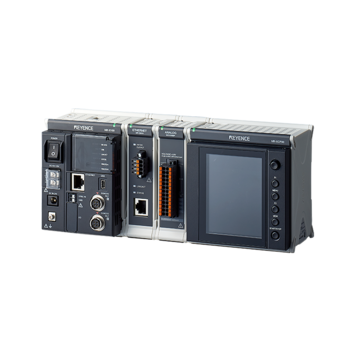Data Acquisition (DAQ)
Understanding Thermal Testing: How It Ensures Product Durability and Safety
-
Tags:
- Temperature
Thermal testing is an essential component of product development, particularly in industries that manufacture products subjected to fluctuating temperatures. This testing process involves exposing a product to extreme temperatures while monitoring its performance to ensure compliance with safety standards and its ability to endure the demands of everyday use. This article will be a guide into what thermal testing is, its importance and benefits, and how it helps ensure product durability.
What is Thermal Testing?
Thermal testing is the process of assessing how a product is responding or will respond to various temperature conditions. This technique is employed during product development to ensure quality and reliability. By simulating real-world environments, thermal testing utilizes advanced processes and technologies to determine how materials and components react to extreme heat or cold.
Understanding how products respond to varying temperature conditions is crucial for enhancing their reliability, durability, and safety for consumer use. Industries that heavily rely on thermal testing include:
- Electronics
- Automotive
- Aerospace
- Manufacturing
The process involves various stages, ranging from basic heat tests to more intricate thermal cycle testing. This latter method subjects products to repeated temperature fluctuations, allowing for an assessment of their long-term resilience.
We’re here to provide you with more details.
Reach out today!

The Importance of Thermal Analysis in Product Development
Thermal analysis is a detailed examination of how materials behave under varying temperature conditions, and it is important to improve product performance. Without it, you may be unaware of the many temperate conditions that your products may fail to perform when exposed to temperature changes in real-world applications.
For example, overheating in electronics can cause malfunctions or other forms of damage. Manufacturers can pinpoint potential issues early by conducting comprehensive thermal tests during the development phase and making design adjustments to enhance product durability.
Incorporating high-precision testing tools like KEYENCE temperature measurement DAQ into thermal analysis offers greater accuracy and efficiency. These tools help streamline the process, ensuring engineers have the data they need to make informed decisions.
Benefits of Heat Tests for Industries
The heat test is performed in many industries for quality control and gives insight into product performance during high temperatures. Components intended for use in automobiles also need to be tested for reliable performance in both very hot and freezing temperatures. Thermal tests on these parts are necessary so they can bear extreme weather conditions without compromising vehicle safety or performance.
Materials operating in aerospace, for example, will be expected to incur dramatic changes in temperature during flight. Heat tests confirm that they can do this without the loss of structural integrity. Equally important, thermal analysis allows devices to operate in the heat after running for some time. If this heat is not managed correctly, overheating may lead to complete failure.
Carrying out heat tests ensures that products maintain functionality over long periods of use. The KEYENCE DAQ NR-X data logger is an ideal solution to improve the efficiency of these tests. High-speed data logging enables this system to provide accurate temperature measurements for thermal testing accuracy by the engineers. Its multi-channel capability enables several component tests to be conducted simultaneously, improving productivity by not allowing important data to miss their recording.
How Temperature Testing Ensures Product Stability
Temperature testing is crucial for assessing the long-term stability of products, especially those exposed to varying temperatures. Thermal cycling involves cycling a product between extreme heat and cold for various numbers of cycles, replicating or simulating real-life conditions wherein materials go through continuous expansion and contraction. This is important to conduct for any product test that is resistant to fatigue and deterioration for an extended period.
For instance, in renewable energy systems, components are supposed to withstand daily temperature fluctuations when exposed to outdoor conditions. In this respect, temperature testing ensures that such systems can continue working for many decades without breakdown due to material fatigue. Similarly, telecommunication equipment normally installed outdoors uses temperature testing to guarantee its effectiveness in working in any kind of weather condition.
Temperature testing systems from KEYENCE incorporate the NR-500 DAQ system, which gives manufacturers progressive data recording and analysis. With flexible data logging, the NR-500 has high-resolution measurements to find the smallest temperature fluctuation that could affect product performance.
Discover more about this product.
Click here to book your demo.

Elevate Thermal Testing Efficiency with KEYENCE DAQ Systems
Thermal testing is essential for ensuring that products are durable, reliable, and safe. However, engineers need tools that can capture precise data in real time to perform these tests accurately and efficiently. KEYENCE measurement DAQ systems are designed to elevate the efficiency of thermal testing, enabling faster, more detailed analysis of product behavior under varying temperature conditions. See video for time saving setup.
The NR-X data logger is particularly well-suited for high-speed data logging, with the ability to record data across multiple channels simultaneously. This capability is invaluable in industries where multiple components need to be tested simultaneously, like in automotive manufacturing or electronics production. The NR-X ensures that engineers have the information they need to make quick, data-driven decisions by providing accurate, real-time temperature measurements.
Similarly, the NR-500 DAQ system offers advanced temperature measurement capabilities, making it an ideal choice for temperature testing that requires high resolution and precise logging. Its flexible data recording options allow engineers to tailor their tests to specific needs, improving efficiency and accuracy. Whether conducting thermal cycle testing or detailed heat tests, the NR-500 ensures manufacturers get reliable, actionable data.
Using KEYENCE DAQ systems improves the accuracy of thermal testing and helps reduce costs associated with product recalls or failures. Manufacturers can avoid costly redesigns or production delays by catching potential issues early in the development phase. These systems ensure that products meet the highest standards of durability and safety before they reach consumers.
Conclusion
Thermal testing is critical to ensuring that products are durable and safe for their intended use. From thermal cycle testing in harsh environments to heat tests that measure a product’s resistance to extreme temperatures, these processes help manufacturers deliver high-quality products that can withstand the stresses of real-world use.
To learn more about how KEYENCE DAQ systems can optimize your thermal testing processes, explore the full range of solutions here.
Contact us to learn more about how our advanced technology can help take your business to the next level.
Contact Us



